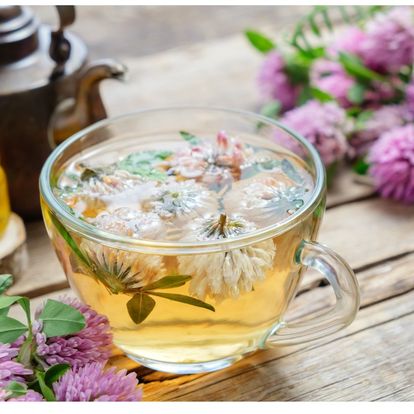
Decaffeinated Tea - good or bad?
Share
If you are anything like me, you cannot drink any tea containing caffeine after about two in the afternoon. Not if I don't want to be pacing the room in the wee hours of the morning! As caffeine stimulates the nervous system, many of us look for caffeine free alternative closest to bedtime, so that we can enjoy a good nights sleep. As a tea lover, you would probably know that leaves produced from the Camellia sinensis tea plant all contain some measure of caffeine. The amount of caffeine depends on the type of tea (black, green or white), but the biggest factor is the water temperature used and the steeping time. Leaves steeped in boiling water for 5 minutes will have a greater caffeine content than those steeped for a lesser time at a lower temperature, Where the leaves are grown also has an influence, with the youngest leaves, highest on the plant, containing a higher concentration of caffeine as well as antioxidants. I was surprised to find out that the caffeine levels in tea bags are higher. This is due to a greater surface area as the leaves are broken and fine. I know a few friends who drink decaffeinated tea, where the caffeine has been removed. And so I was interested to find out a bit more about this process.
There are four de-caffeination methods that are currently used :
🌿Carbon Dioxide- considered the safest, while still preserving the flavour of the tea. The liquid carbon dioxide attracts the caffeine molecules out of the tea leaves.
🌿Ethyl Acetate - the leaves are soaked in a Ethyl Acetate solution that occurs naturally in tea leaves. Although it is not associated with health risk, it does decay the flavour of the tea.
🌿Methylene Chloride - the tea leaves are soaked in this, which bonds with the caffeine molecules. Some traces of the chemical compound are often found in the decaffeinated leaves.
🌿Water Processing - usually associated with coffee beans, where hot water extracts the caffeine. The water is then returned to the leaves where the extracted flavours are absorbed.
If caffeine causes issues for you, or you are wanting to avoid caffeinated drinks at certain times of the day, you should be aware of a few things:
🌿 The decaffeinating process does not removes all of the caffeine, with around 2.5% remaining.
🌿Decaffeinated teas often have a dull taste or are lacking in flavour.
🌿70% of the polyphenols or the antioxidants that provide positive health benefits in tea are lost during the decaffeination process.
🌿The more natural the decaffeination process, the more antioxidants and flavours are retained.
Lastly, if you are wanting to reduce your daily consumption of caffeine:
🌿Look for water -processed decaf teas
🌿Sip on a naturally caffeine free alternative such as our Ravishing Red Rooibos or Moroccan Mint teas. There are so many delicious herbal and fruit teas that contain no caffeine, you might just find your new favourite tea!
🌿 Information courtesy of:
- "The Tea Book" by Linda Gaylard 2015.
- "The Healing Power of Tea" by Caroline Dow 2016.
- www.tea101.teabox.com "Is decaffeinated tea bad for you?" 2017.
- The Truth about Caffeine https://www.teaclass.com/lesson_0112.html
